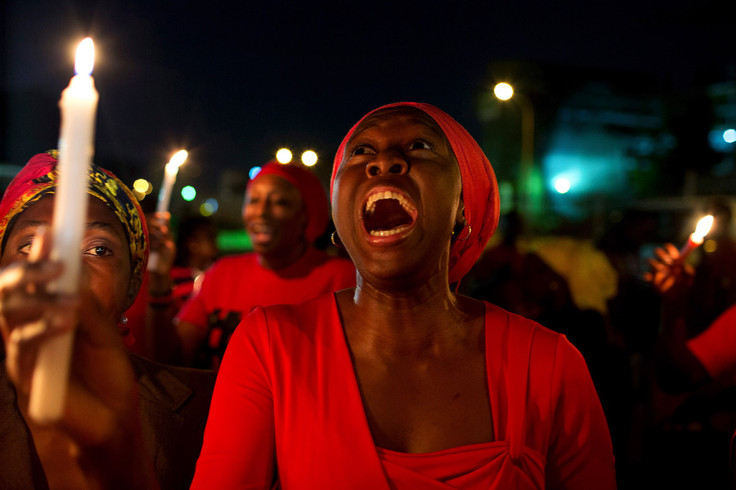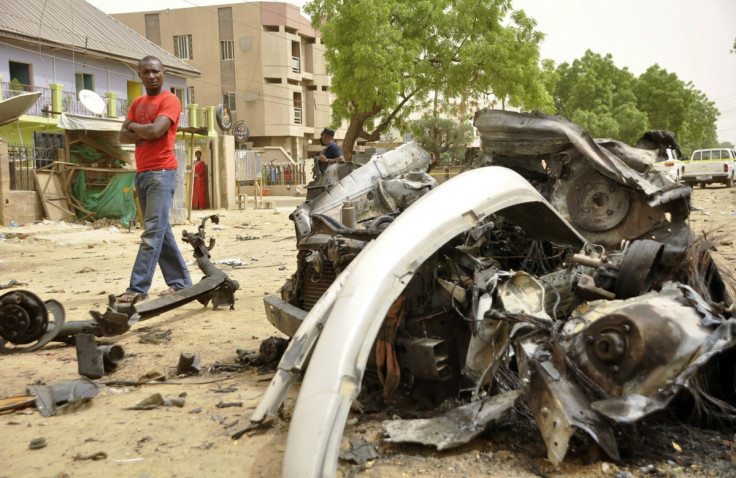How Nigeria Can Destroy Boko Haram and Prevent Future Child Kidnappings

Jama'atu Ahlis Sunna Lidda'awati Wal-Jihad, commonly referred to as Boko Haram, has garnered substantial international attention through its recent terror attacks in Nigeria. The group has engaged in a range of attack types during its existence, but in 2014 it has concentrated its efforts on car bombing in cities; and raids and mass abductions in villages in the northeast of the country.
Nigeria's regional standing and, to a certain extent, its economic power, is threatened by the continuation of the violence – if not by direct threat, then by the political instability. Growing dissatisfaction at the government's efforts to curb the reign of terror that has seen the death and displacement of thousands has placed enormous pressure on Nigerian President Goodluck Jonathan, and will likely feature prominently in the 2015 elections.
Boko Haram can be broadly described as a militant Islamist sect, seeking the installation of hardline Sharia law through the replacement of the Nigerian government. The abduction of a large number of schoolgirls from Chibok has dominated recent coverage and commentary on the conflict but Boko Haram's strategic goals and the origins of the group are more complex than its "western influence-hating" nickname and the simplified popular perception that goes with it.
The group has grown out of, and thrives at, the intersection of inter-ethnic competition for power, ideological radicalism, and a deep-seated hatred of the Nigerian government. Factors like economic impoverishment in the area, and to a certain extent, the human rights abuses inflicted by the Nigerian security forces themselves, have played a role in the persistence, and growing intensity of the conflict.
Military action: the solution to Boko Haram?
Military and security forces are instrumental in the provision of, well, security. However, the effectiveness of such forces in ending the activities of a group like Boko Haram, or other non-state actor groups engaged in asymmetric warfare (waged across the spectrum of terrorism to outright insurgency or civil-war) is questionable.
Nigerian military spokesmen have announced on numerous occasions that "crippling blows" have been struck against Boko Haram fighters, either through air-strikes or ground assaults. These announcements have traditionally been treated by analysts as, at best, exaggerations, if not complete fiction.
Not only has the Nigerian military proven unable to defeat Boko Haram through kinetic action, but it has been shown over the past months of 2014, to be unable to provide security for the villages being regularly raided by Boko Haram in the northeast of the country, let alone able to counter the terror cells responsible for bombings in Abuja and most recently, Kano and Jos.

Military action could yet be effective in diminishing the group's ability to conduct either raids or terror bombings. It could achieve this by better isolating and pinning down the Boko Haram fighters in the northeast of the country, constraining the group's logistical support, and degrading its ability to coordinate attacks. But such measures would only reduce Boko Haram's operational ability.
The elimination of Abubakar Shekau, the nominal leader of Boko Haram, has been a primary goal for some time, with several overzealous claims of his death having been made in the past. Killing Shekau could shut down Boko Haram's most visible propaganda efforts, and would potentially buy some time and credibility for the Nigerian military and embattled president, Goodluck Jonathan, but it would not by itself end the conflict. 'Decapitation' (the killing of leadership) is of debateable effectiveness for both counter-terrorism and counter-insurgency. The death of Osama bin Laden did not threaten the existence of al-Qaeda.
The longer an insurgent force or terrorist organisation has been in existence, the less effective killing its leaders is. There is also the chance that killing Shekau would merely result in a newer, more radical figurehead emerging. Mohammed Yusuf, the founder of Boko Haram, died while in police custody in 2009 (he was almost certainly extra-judicially executed). Abubakar Shekau emerged in his place along with the current violent campaign waged by Boko Haram.
Is negotiation with Boko Haram possible?
A negotiated settlement in north-eastern Nigeria is the other option on the table for the Nigerian government. The first problem here is that talks with Boko Haram is currently politically unacceptable for the Nigerian government. Moreover, Boko Haram currently holds the initiative, and is thus in a position to make unacceptable demands.
For negotiations to succeed, the Boko Haram leadership would have to be recognised and brought into the political fold to an extent – something the Abuja government, and the current Islamic leadership of the northern states cannot tolerate. An amnesty or negotiated settlement is however, by itself, also only a temporary means of reducing the threat of violence.
Pledges of international aid, declarations of "all-out war" by the Nigerian government, and multilateral sanctions by the United Nations may all serve to drive the conflict forward – but they are for the most part cosmetic. In order to end the Boko Haram threat to security and stability, Nigeria would ultimately have to confront the social, political, and economic factors that allow this and others insurgencies, to emerge and fester.
A best case solution for protecting against Nigeria's repeated domestic insecurity requires a complete overhaul of the current political status quo. At present, the Nigerian political system exists as an iterated contest between the dominant ethnic groups: the Hausa-Fulani, Yoruba, and to a lesser extent, the Igbo. There are numerous smaller ethnic groups as well.
This competition for representation is the reason that Nigeria began post-colonial existence as three states, and is now composed of 36. The pervasive marginalisation of those numerous minority ethnic groups in particular, provides fertile territory for insurgencies to take root. Economic marginalisation and under-development, stemming from cronyism and a political culture patronage further foster anti-government sentiment that can lead to radicalism. Confronting Nigeria's pervasive corruption is a serious consideration to better serving these regions.
______________________________________
Conway Waddington is the West Africa Regional Analyst for the Africa Conflict Monthly Monitor (ACMM), a monthly analytical report produced by Consultancy Africa Intelligence (CAI), a South Africa-based, Africa-focused research and advisory firm. CAI's tailored, client-oriented approach to analytical research, focused solely and comprehensively on Africa, ensures fully informed decision-making through customised intelligence solutions.
CAI is offering all International Business Times readers a 30% discount on any ACMM subscription. Simply subscribe here using the coupon code "IBTIMES" before the end of May 2014, and receive a full 30% off your subscription!
© Copyright IBTimes 2025. All rights reserved.





















